|
10:21.31S 149:30.58E
Port Glasgow – Mainland PNG 3rd August 2010
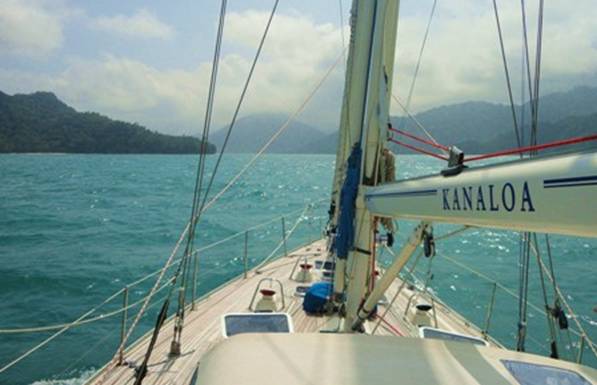
Port Glasgow is a natural harbour, entered through a narrow channel,
which the SE wind pushes us into in near surfing conditions. The
prospect of having a calm anchorage after the blustery conditions outside is
too tempting to ignore. We were not disappointed, arriving after a
short 7 hour sail.
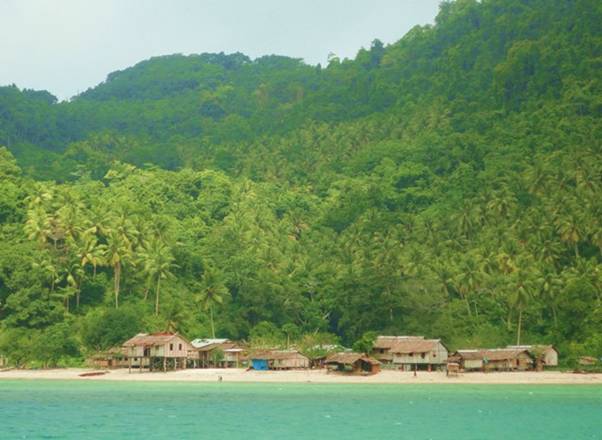
Of several villages in this natural harbour, this one, Gaea Gaea Mari
is the closest to the calm anchorage.
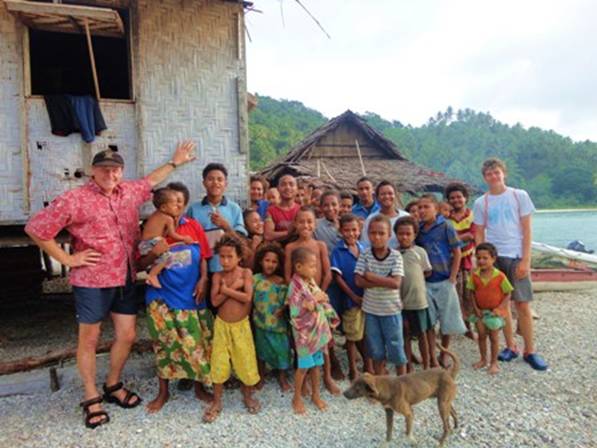
Venturing ashore, we are greeted by many women and babies and
children, we seem to be the first white visitors they have seen in a long
time, and most are very shy. I show them the photo I took, and the glee
and excitement at seeing themselves for the first time is proof indeed that
civilisation has still not reached their shores!
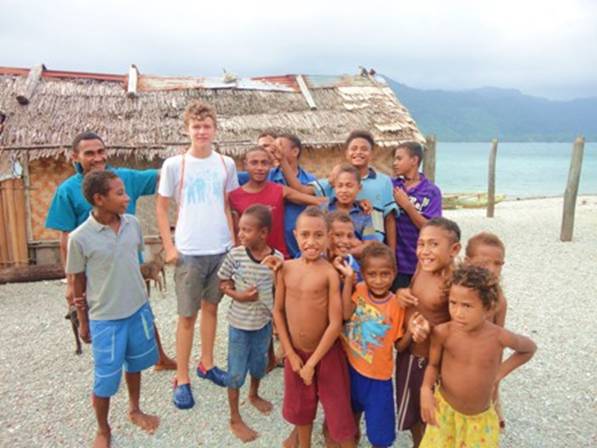 The
pleasure these lads had at being in the same photo as Ollie was
tremendous. There seems to be no explanation for this malnourished boy
in the photo center, as they have plenty of food in their gardens. The
pleasure these lads had at being in the same photo as Ollie was
tremendous. There seems to be no explanation for this malnourished boy
in the photo center, as they have plenty of food in their gardens.
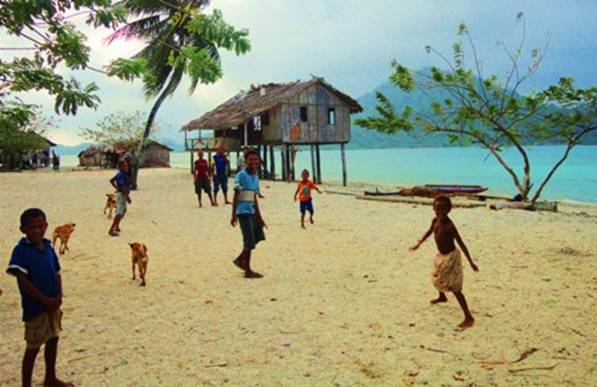
The hut on stilts looks worse for wear,
and seemingly not in use. The other houses in the village are in a better
state, as is the United Church below:
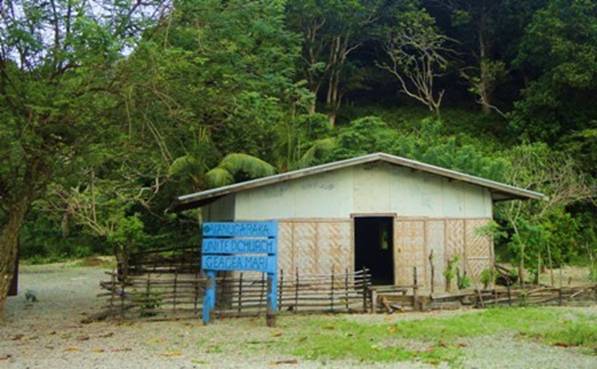 Not being Sunday, we could not witness the
service, but from the photo I took of the inside, it seems they all sit on
the ground and say their prayers in their local village dialect and sing
hymns. Not being Sunday, we could not witness the
service, but from the photo I took of the inside, it seems they all sit on
the ground and say their prayers in their local village dialect and sing
hymns.
The blackboard behind the Altar gives a
list of who donated money, the rota for the lay preachers and the people in
charge of the village community.
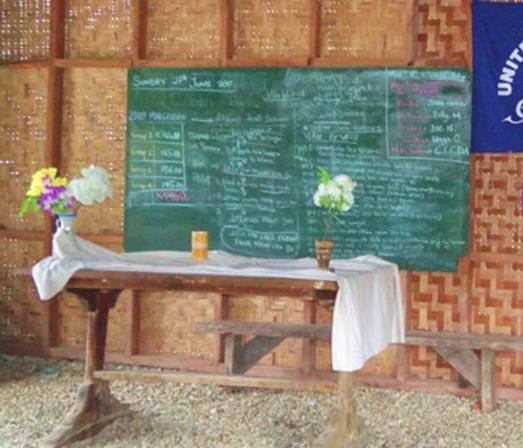
They had no first aid person, and asked
us if we could possibly diagnose the intestinal pain on his right hand side
being suffered by a 30 year old for the past 2 weeks. David just gave
him pain killer, as it is too difficult to diagnose something like that!
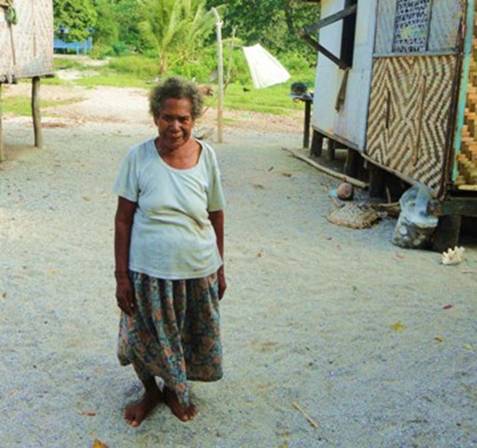
This lovely old Mum was impatient to
see herself in this photo, she was so amazed at what she saw... I am sure we
would all get a shock if we never knew what we looked like too
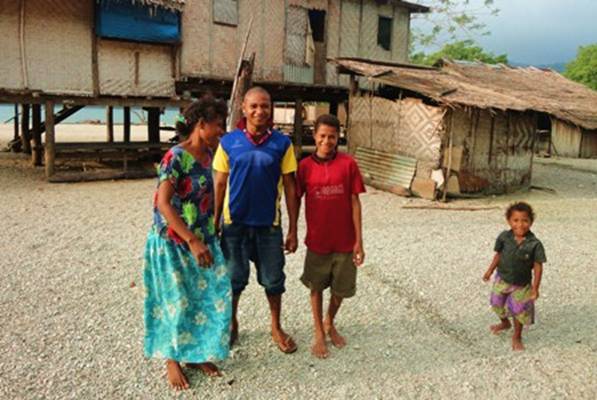
This is the Mum’s children, all
educated to 10th grade and speaking English reasonably well,
although they come back and live in the village again, not able to get themselves
a job outside.
The cost of higher education is
prohibitive for these families, so most are just literate, and can help their
families at home to live the normal life of gardening, fishing, boat building
and making houses.
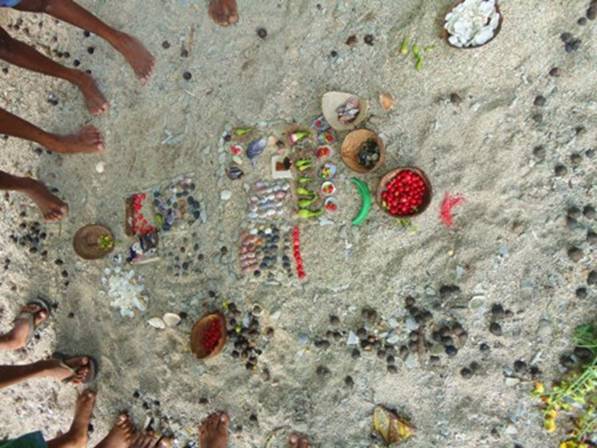
The kids can amuse themself with games
in the sand, here it seems they have collected small flower seeds, shells and
fruits, into half coconut shells.
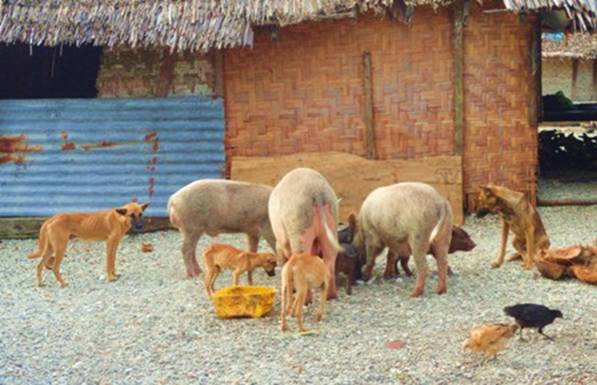
Half coconuts is not only fed to pigs,
but also dogs, who have to wait their turn – no wonder the dogs look so
pitiful! Even the chooks manage to get more food.
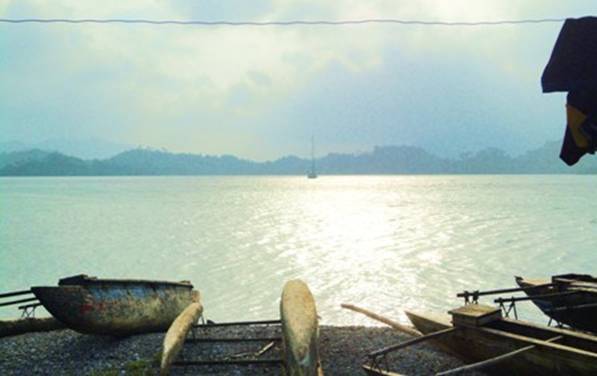
Kanaloa anchored off the village, so
many canoes on this beach are proof that water transport is the only means by
which these villagers can get about. The elementary school is on the
other side of this natural harbour.
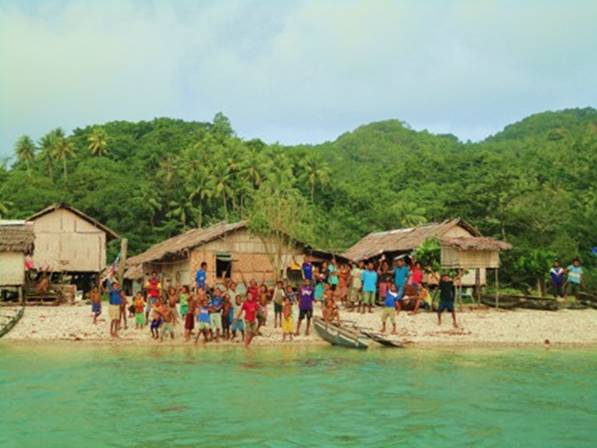
We’re given a grand send off by
the villagers as we go back to Kanaloa in our dinghy.
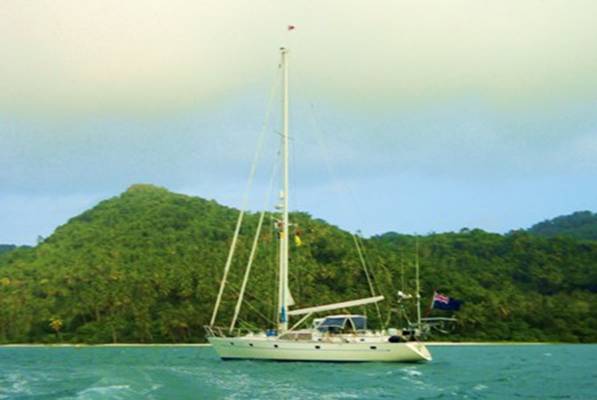
We look quite an attraction to the
villagers here, and were surrounded by dugouts the next morning, before we
left, with some of them hanging on to the side of our boat as we motored
away! No harm done, however, and nobody boarded our boat during the
night, which we found out may have happened, according to one experienced
yachtsmen we met in Port Moresby.
Apparently one yacht had a gorgeous
blue hull, the boys in the dugouts fancied the opportunity of carving their
name into the paintwork – yikes!
|

